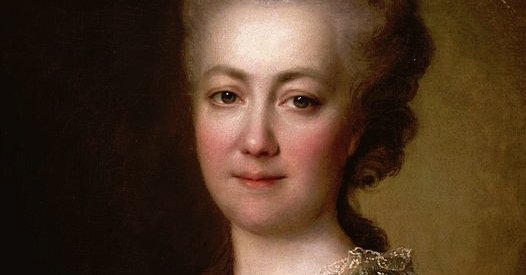From a cultural-historical perspective, Russians are not so distinct from Europeans. Indeed, the ancient Kievan Rus (the forerunner of the Ukrainian and Russian nations) was built by Vikings and was converted to Christianity by the Byzantine Empire. Since the Middle Ages, right up to the collapse of the USSR, the Baltic region has faced waves of Russian migration. In addition to this, the Lithuanian state (which once stretched from the Baltic to the Black Sea) has a long history of its indigenous peoples peacefully living side by side with ’Belorussians’ (aka ’free’ or ’white Russians’, a people who did not fall under the influence of the Mongolian Empire). Some historians even argue that Russia’s influence was so great (e.g. many territories had Russian names) that the Lithuanian Empire was essentially a ’semi-Russian civilisation’ until the foundation of the Polish-Lithuanian Commonwealth (Rzeczpospolita) in 1569. Aside from the Baltics, both Germany and Greece host large Russian-speaking diasporas. Most of these Russo-Germans and Russo-Greeks, whose ancestors moved to Russia during the years 1500-1918, returned to their historical homelands in the wake of Communist oppression and the mass exiles of the 1940s. Due to their heritage, many regard these Russian-speaking diasporas as ’bridges’ between Russian and European civilisation. Indeed, notable and historic ‘bridges’ include both the Byzantine icon painter Feofan and Catherine II (‘Catherine The Great’). Both individuals made a tremendous contribution to Russian and Soviet arts, science and politics.
The Baltic Russians, whose ancestors were often compelled to migrate to the Baltics by Soviet authorities during the Soviet occupation, should not be considered illegitimate citizens who are only entitled to second-class passports. Indeed, many ethnic Russians living in the Baltic States were born in the Baltics. Despite this, however, the majority are not recognised as legal citizens. Accordingly, these Russian-speaking diasporas face a situation whereby they are made to feel that both the modern-day Russian state, and the place they were born, are not their home. In light of this, it is imperative that the EU urges its Baltic members to adopt inclusive policies which foster integration. Indeed, policies such as providing ethnic Russians with a path towards citizenship were practised by the former Prime Minister of Estonia Taavi Roivas [2]. Unfortunately, many of the inclusive policies introduced by Roivas’ government might one day be repealed by right-wing political movements such as the EKRE.
Ultimately, policies which champion inclusiveness, and improve the living conditions of the Russian-speaking diasporas, can make the EU popular among Russians. Indeed, the EU should consider running cultural and social agencies, media channels, and educational initiatives, which are designed to further integrate Russian-speaking communities into the EU. Additionally, we should note that many of the policies implemented by both the EU and its member states (such as free and universal education) would resonate with large swathes of Russians who still feel a nostalgic connection to the USSR. Additionally, by making a conscious effort to integrate the Russian-speaking minorities into society, Baltic civil society would be incentivised to spend more time, money and effort opening up their organisations to Russian-speakers. Such an inclusive strategy, if adopted, would reduce Moscow’s influence amongst these diasporas and could lead to a wonderful situation whereby Europe witnesses Russians of Europe abandon their desire to be Russian citizens and instead wave the EU flag as an alternative to the White-Blue-Red striped one.
In conclusion, the EU’s Russian-speaking diasporas have a lot to offer. Indeed, having more Russian speakers within the supranational institutions would be extremely useful as Russian is a major language in both diplomacy and global foreign affairs. Finally, having a large supply of Russian speakers would be particularly useful when it comes to negotiating with the Russian Federation, states in Central Asia, Azerbaijan, Armenia and possibly Israel (a state which hosts over 1 million Soviet Jews and where Russian is the most spoken language after Hebrew and Arabic).
REFERENCES
[1] Segodnya (2015) ’Only 18% of Ukrainians have a sufficient knowledge of English’, 17 December. Available at: http://www.segodnya.ua/ukraine/tolko-18-ukraincev-vladeyut-angliyskim-na-urovne-vyshe-srednego-676272.html
[2] The Baltic Times (2015) ’Estonia urges Russian speakers to adopt Russian citizenship’, 17 November. Available at: http://www.baltictimes.com/estonia_urges_russian_speakers_to_adopt_estonian_citizenship/

Follow the comments: |
|
